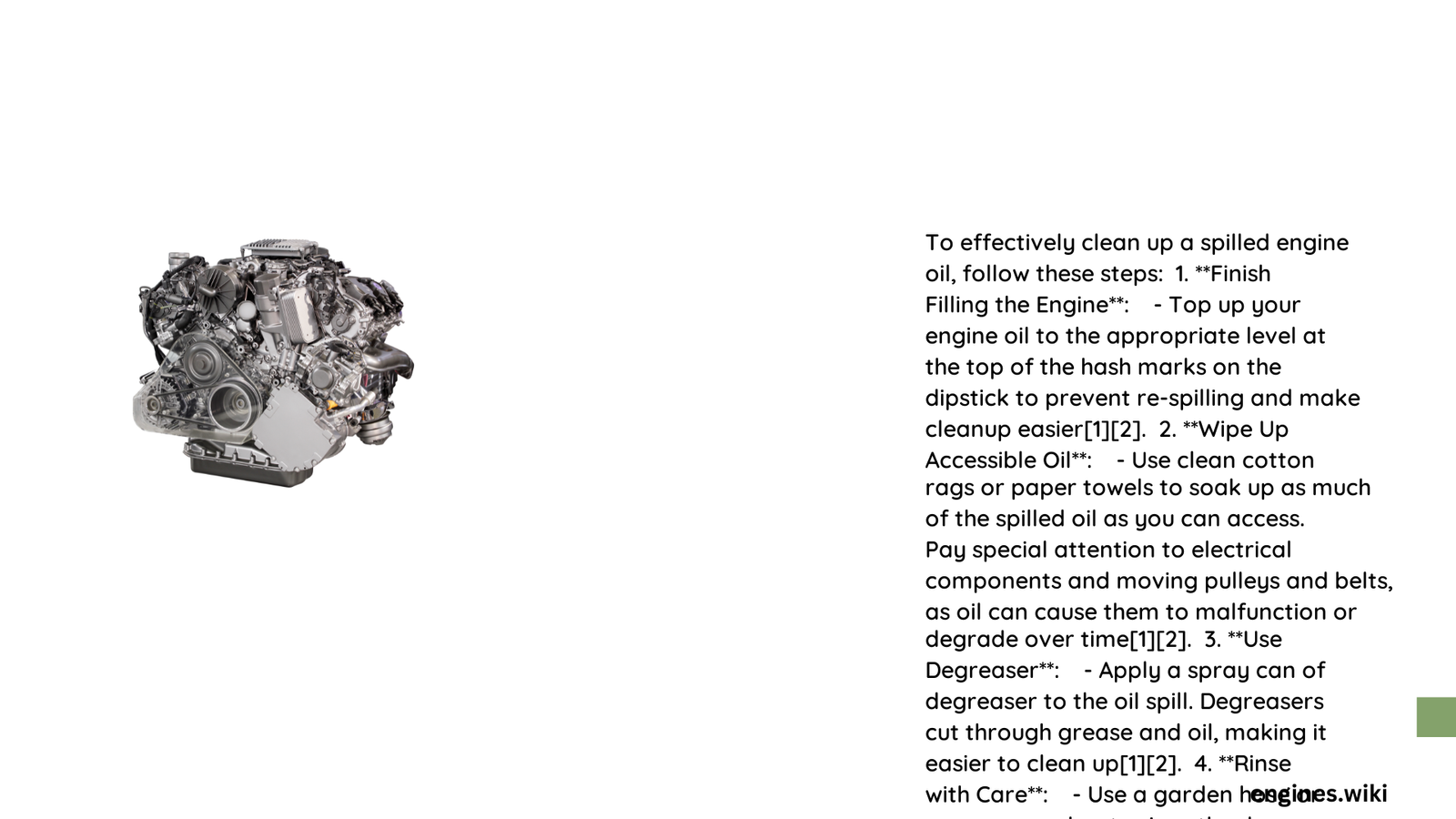When an unexpected oil spill occurs on your vehicle’s engine, quick and precise action becomes crucial to prevent potential long-term damage. Oil spills can compromise engine performance, create safety hazards, and lead to costly repairs if not addressed immediately. Understanding the right techniques for containment, cleaning, and prevention can save you significant time, money, and potential engine complications.
What Are the Immediate Steps After an Oil Spill?
How Do I Stop the Initial Leak?
- Shut Down the Engine Immediately
- Prevent further oil distribution
- Minimize potential environmental contamination
- Reduce risk of electrical short circuits
What Safety Precautions Should I Take?
- Wear appropriate Personal Protective Equipment (PPE)
- Chemical-resistant gloves
- Safety goggles
-
Long-sleeved protective clothing
-
Ventilate the workspace
- Open garage doors and windows
- Ensure proper air circulation
- Reduce potential fume accumulation
What Tools Do I Need for Oil Spill Cleanup?

| Tool Category | Recommended Items | Purpose |
|---|---|---|
| Absorbent Materials | – Oil-specific sorbent pads – Granular absorbents – Cat litter |
Contain and absorb oil quickly |
| Cleaning Agents | – Engine degreaser – Biodegradable cleaning solution |
Remove oil residue effectively |
| Protection | – Plastic sheeting – Disposable rags – Protective gloves |
Prevent surface contamination |
How Do I Clean the Affected Engine Area?
Detailed Cleaning Process
- Initial Containment
- Use absorbent materials to soak up excess oil
- Prevent oil from spreading to other engine components
-
Work from the outer edges towards the center of the spill
-
Degreasing Technique
- Apply specialized engine degreaser
- Allow solution to sit for recommended duration
- Use soft-bristled brush for gentle scrubbing
- Rinse thoroughly with clean water
What Mistakes Should I Avoid?
- Do not use water-based detergents
- Avoid high-pressure washing
- Never use open flames near spilled oil
- Do not attempt cleanup without proper protective gear
How Can I Prevent Future Oil Spills?
Regular Maintenance Strategies
- Conduct monthly engine inspections
- Check oil pan and gasket seals
- Replace worn-out components promptly
- Use high-quality oil filters
- Monitor oil levels consistently
What Are Potential Risks of Improper Oil Spill Handling?
Long-Term Engine Consequences
- Accelerated component corrosion
- Electrical system damage
- Reduced engine performance
- Potential complete engine failure
- Environmental contamination
Professional Recommendations
- If unsure about cleanup, consult professional mechanics
- Document the spill for insurance purposes
- Consider professional engine detailing for comprehensive cleaning
Additional Expert Tips
- Keep a dedicated oil spill kit in your garage
- Learn basic engine maintenance
- Understand your vehicle’s specific requirements
- Stay calm and methodical during cleanup
Pro Tip: Always prioritize safety and thorough cleaning over quick fixes. A methodical approach can save significant repair costs and prevent long-term engine damage.
Final Thoughts
Oil spills demand immediate, knowledgeable action. By following these comprehensive guidelines, you can effectively manage unexpected engine oil incidents while protecting your vehicle’s performance and longevity.
